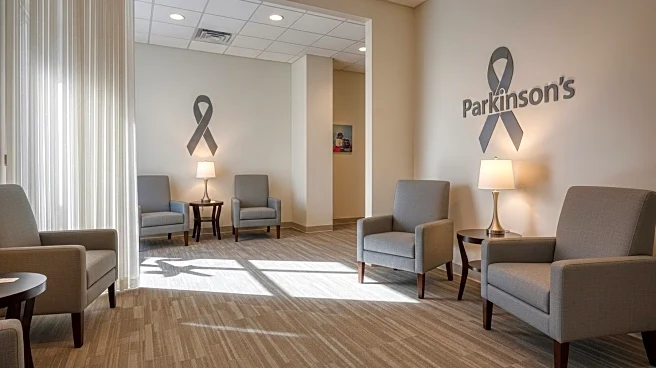What's Happening?
Kirk Gibson, a former Dodgers hero, is channeling his efforts into supporting individuals with Parkinson's disease by opening the Kirk Gibson Center for Parkinson's Wellness in Farmington Hills, Michigan. Diagnosed with Parkinson's in 2015, Gibson has dedicated himself to creating a supportive environment for those affected by the disease. The center, set to open on October 6, offers a 30,000-square-foot facility with gyms, movement classes, and social spaces, all free of charge. Gibson's initiative aims to foster a community where Parkinson's patients can thrive, encouraging them to engage in activities and combat depression.
Why It's Important?
The opening of the Kirk Gibson Center for Parkinson's Wellness represents a significant advancement in the support available to Parkinson's patients. By providing free access to facilities and classes, the center addresses the need for comprehensive care and community engagement, which are crucial for managing the disease. Gibson's personal involvement and dedication to the cause highlight the importance of creating spaces where patients can find solace and support. This initiative not only benefits individuals with Parkinson's but also raises awareness about the disease and the importance of community-based support systems.
What's Next?
With the center's formal opening scheduled for October 6, Gibson plans to continue his active involvement, coaching and supporting the community. The center is expected to attract more members, expanding its reach and impact. As awareness grows, there may be increased interest in similar initiatives across the country, potentially leading to more wellness centers dedicated to Parkinson's patients. Gibson's efforts could inspire other public figures to leverage their influence for social causes, further enhancing support networks for various health conditions.
Beyond the Headlines
Gibson's transformation from a sports icon to a community leader underscores the profound impact of personal experiences on public advocacy. His journey reflects the broader cultural shift towards recognizing the importance of mental health and community support in managing chronic illnesses. The center's establishment may also prompt discussions on the ethical responsibility of public figures to use their platforms for social good, potentially influencing future philanthropic endeavors.










